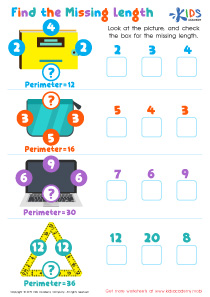Number Recognition Easy Subtraction Worksheets for Ages 3-6
5 filtered results
-
From - To
Introducing our "Number Recognition Easy Subtraction Worksheets for Ages 3-6," designed to make math fun and engaging! These worksheets help young learners strengthen their number recognition skills while exploring simple subtraction concepts. Each activity is tailored to captivate children's interest, using colorful illustrations and playful themes. Perfect for kids aged 3 to 6, these worksheets provide hands-on learning experiences that enhance concentration and problem-solving abilities. With diverse exercises that suit different learning styles, children will enjoy practicing subtraction in a stress-free environment. Start your child's math journey today, as they gain confidence in their counting and early arithmetic skills effortlessly!
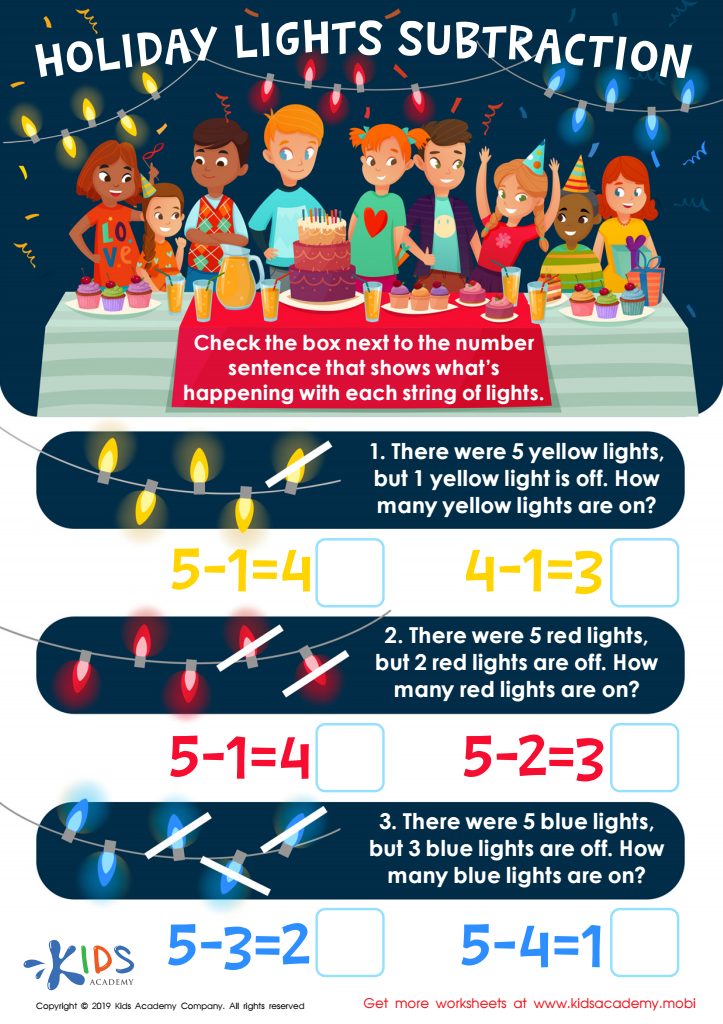

Holiday Lights Subtraction Worksheet
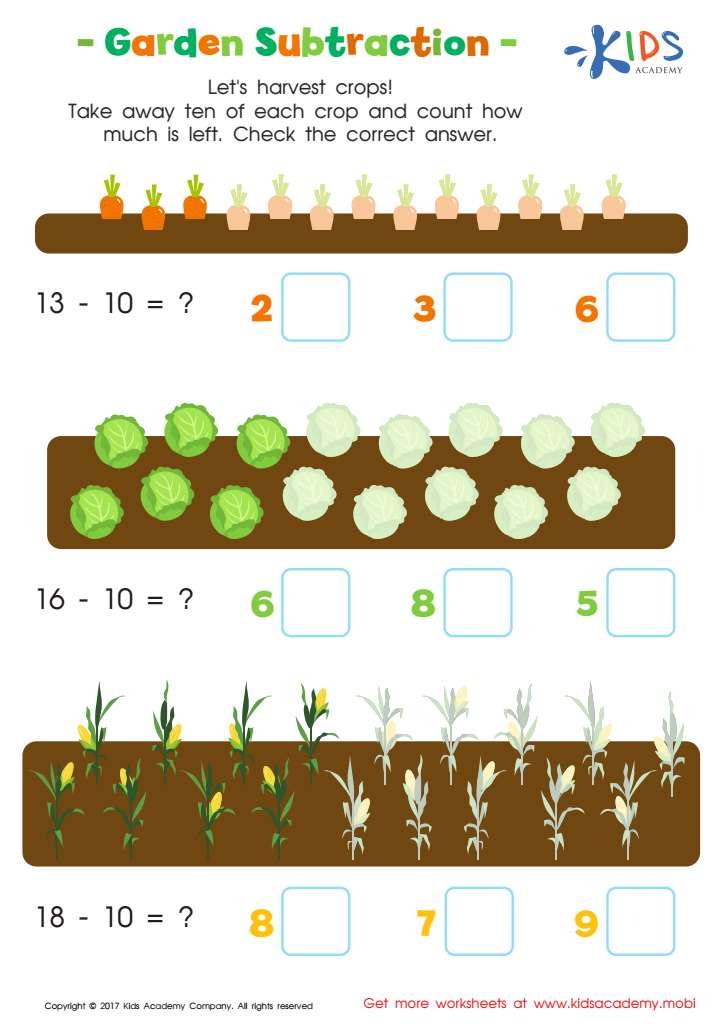

Garden Subtraction Worksheet
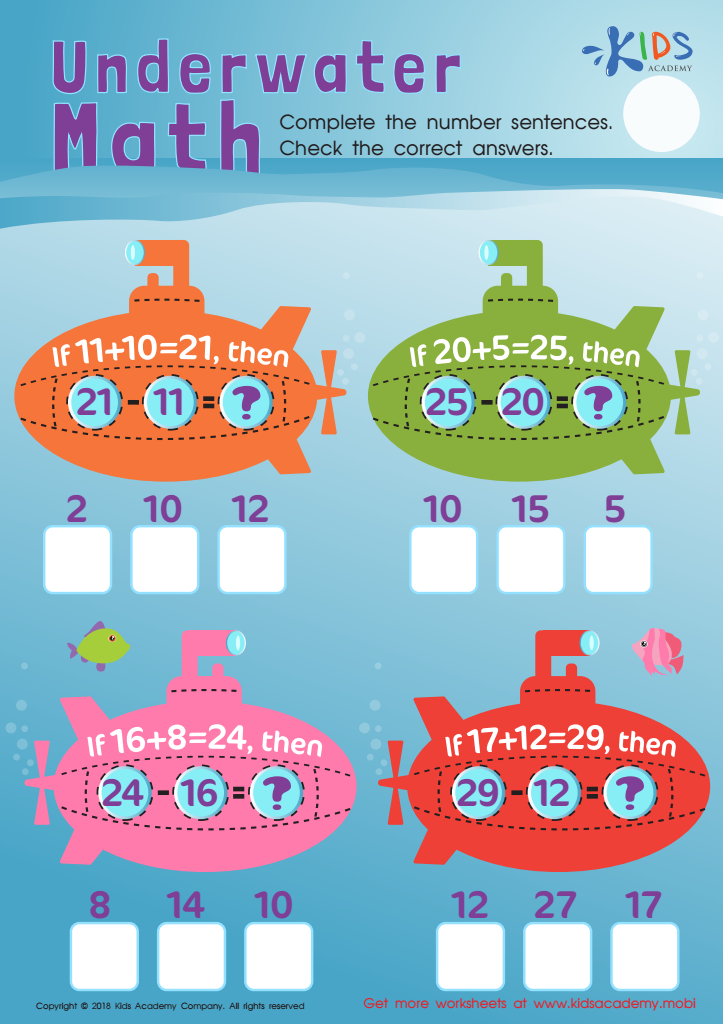

Addition and Subtraction: Underwater Math Worksheet
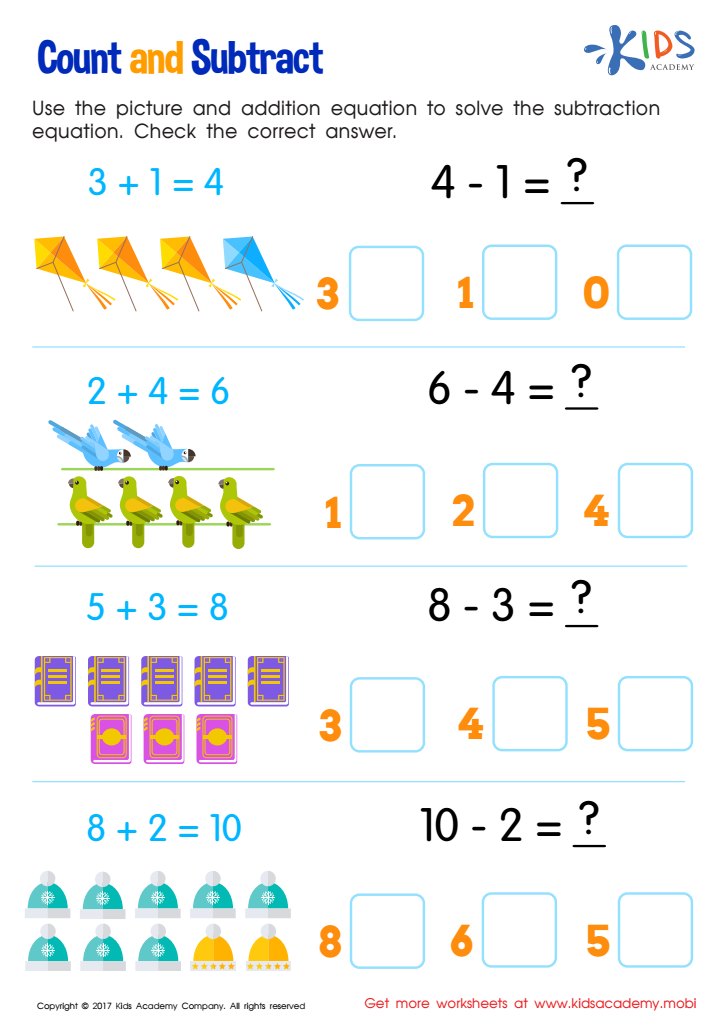

Count and Subtract Worksheet
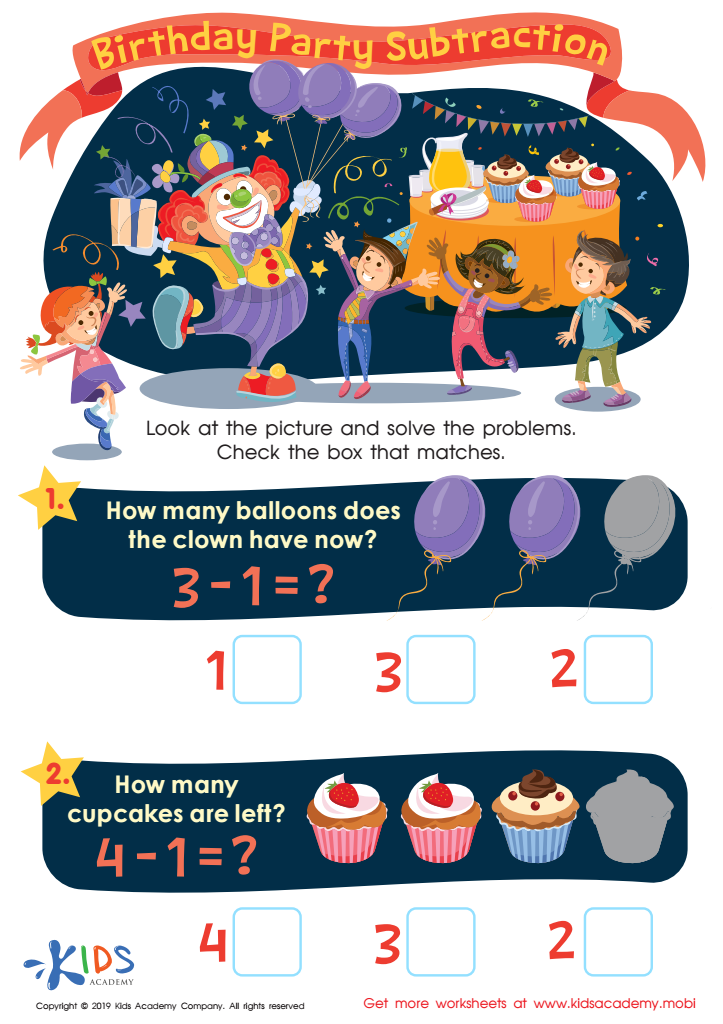

Birthday Party Subtraction Worksheet
Number recognition and easy subtraction are foundational skills for young children, setting the stage for future math-related learning. For children aged 3 to 6, developing these skills encourages not only cognitive growth but also fosters confidence and a positive attitude towards mathematics. When parents and teachers focus on number recognition, children begin to understand the concepts of quantity and value, aiding their ability to identify numbers in their environment.
Early subtraction, even in simple forms, introduces basic problem-solving techniques and critical thinking. It also supports the development of fine motor skills and hand-eye coordination through engaging activities such as counting objects and manipulating them for basic subtraction tasks. By integrating games, songs, and visual aids, parents and teachers can create a stimulating and fun learning atmosphere.
Moreover, mastering these skills helps reduce math anxiety and builds a strong foundation for higher-level math concepts later on. This is particularly important in a world where numeracy has a profound impact on future academic and career opportunities. In short, fostering early number recognition and subtraction skills in young children is crucial for their overall growth and academic success, making it a priority for both parents and educators.
 Assign to My Students
Assign to My Students







.jpg)




